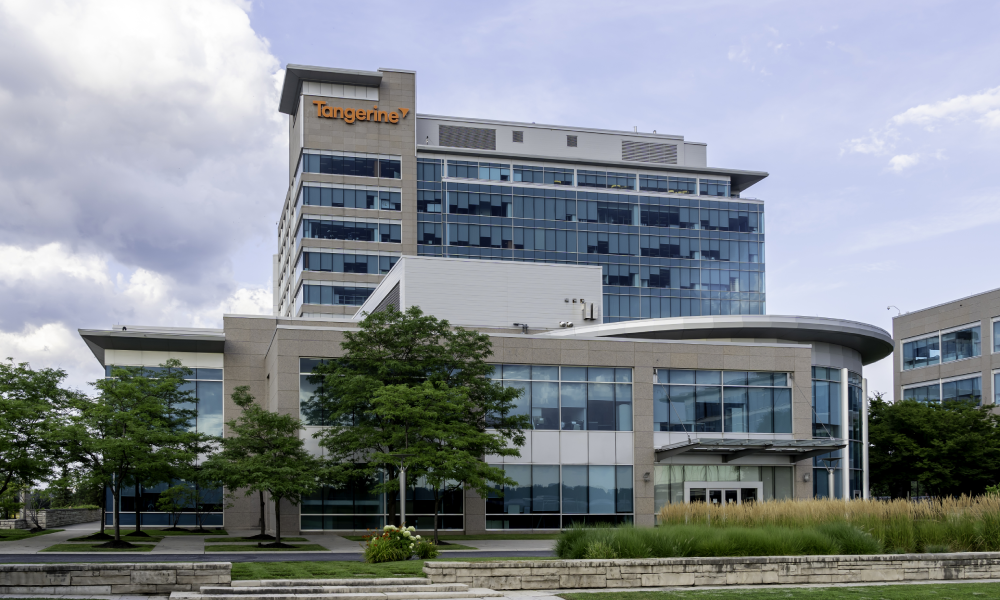Tangerine embraces ‘Meetingless Wednesdays’ to encourage creativity, work-life balance

The COVID-19 pandemic had a great impact on everyone’s lives, and businesses had to adapt to operational and cultural shifts.
“Fifteen months ago, we went through this COVID pandemic, and it changed the way we operated," says Gillian Riley, president and CEO of Tangerine Bank, in an interview with Canadian HR Reporter. "We now have 90 per cent of our staff working virtually, working from home. It’s been a long and hard 15 months for everyone. Lockdowns, no lockdowns, things opening, closing."
“And people had to figure out how to operate in a virtual world where no longer did you go to work; work comes into your house and that has become part of you every day. We saw a big shift, obviously, with people working from home, [and a need to identify] how to balance all the different priorities and the anxiety.”
With that, video calls have become part of life almost every day. But people are getting tired of the so many meetings done right in front of the camera. In fact, with many workers still working remotely, 61 per cent say that all their meetings are done by video, and 49 per cent find it exhausting, according to a report released in March.
But Tangerine Bank has come up with one solution: a day without formal meetings. This came from a conversation with one of their software engineers, says Riley.
“A software engineer said to the management team: ‘You know, there’s something called ‘maker’s time’. And software engineers need time to think. They need time to reflect, they need time to themselves.’ So we said, ‘Tell us more about that’. And they explained that maker’s time is when they... have their own time to plan and develop code that we need for business.”
That gave birth to the idea of “Meetingless Wednesdays.”
“A year into the pandemic, people needed to have a bit of time off-screen,” she says. “So we introduced, every Wednesday, which we still have, ‘Meetingless Wednesdays’, when we have no meetings and people have time to reflect and plan and think through things. "
Planning, innovation and more
Just because people are not having meetings does not mean that work stops, says Riley.
“It’s a workday, it’s definitely a workday and people use the time as they see as appropriate. We’re trying not to have a meeting where there’s a video call of some sort, or a meeting, a formal meeting. You may call somebody, you may work on emails, you may do planning, you may take the time to walk your dog or be with your family as you need.”

Gillian Riley
But it can be tricky to not have meetings, she says.
“I’m encouraging everyone not to have meetings and I don’t have meetings myself... Because we wouldn’t be meeting our purpose if we were having too many meetings. So I keep reminding people not to have meetings on that day and take the time to plan and to balance and take the time that’s needed.”
But it also brings a lot of positivity to the work and the staff, says Riley.
“People find it very, very useful to not have the stress of video after video after video. So I think people are finding it a way to feel a bit more relaxed, and it gives people time to be strategic and not always be in a meeting. I think people find it very effective in helping them manage their time differently and better, balance their priorities, and use the time as they see fit.”
And the idea of having a day without meetings may stick even when people do go back to the office, she says.
“I think it is still applicable... some semblance of that will hold... People need to take more time to plan. We got into a lot of meetings on video during this pandemic, so I actually think that balancing [fewer] meetings and more planning, more innovation [will be important].
After all, innovation and co-creation are really at the heart of it, says Riley.
“You could be in a space where you’re creating, let’s say it’s a whiteboard or stickies… but it’s not a meeting, you’re just talking. And to me, that’s all about co-creation, being agile but also being innovative in a new way. So that’s not considered a meeting to me. That’s… a way of innovation. To create an innovative environment, you don’t want it to be structured and terribly formal. And video calls create a lot more structure. And a meeting creates structure.
“It’s going to be about how to get innovation in a big way back into what we do. And that’s how I see forming the next phase of 'Meetingless Wednesdays'.”




